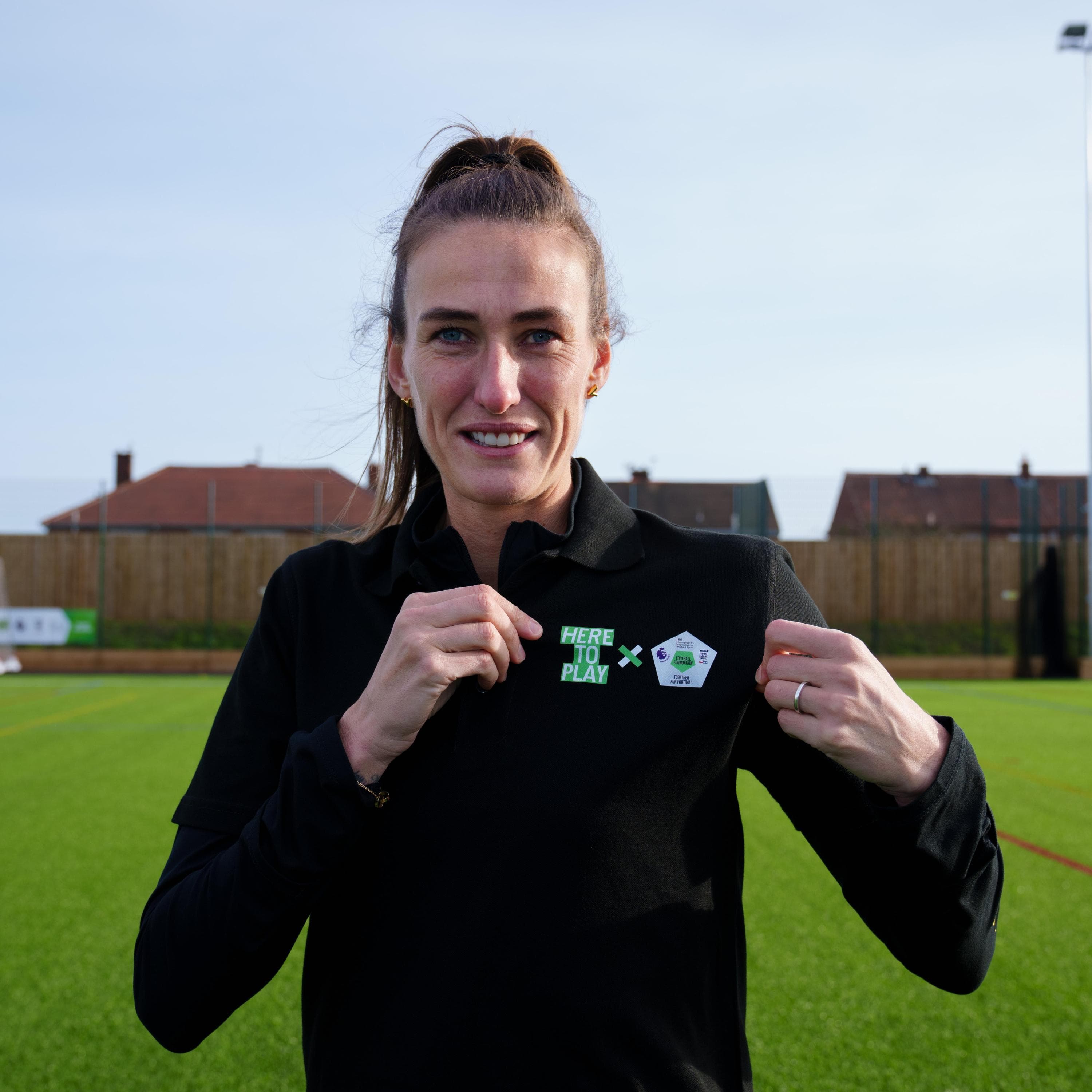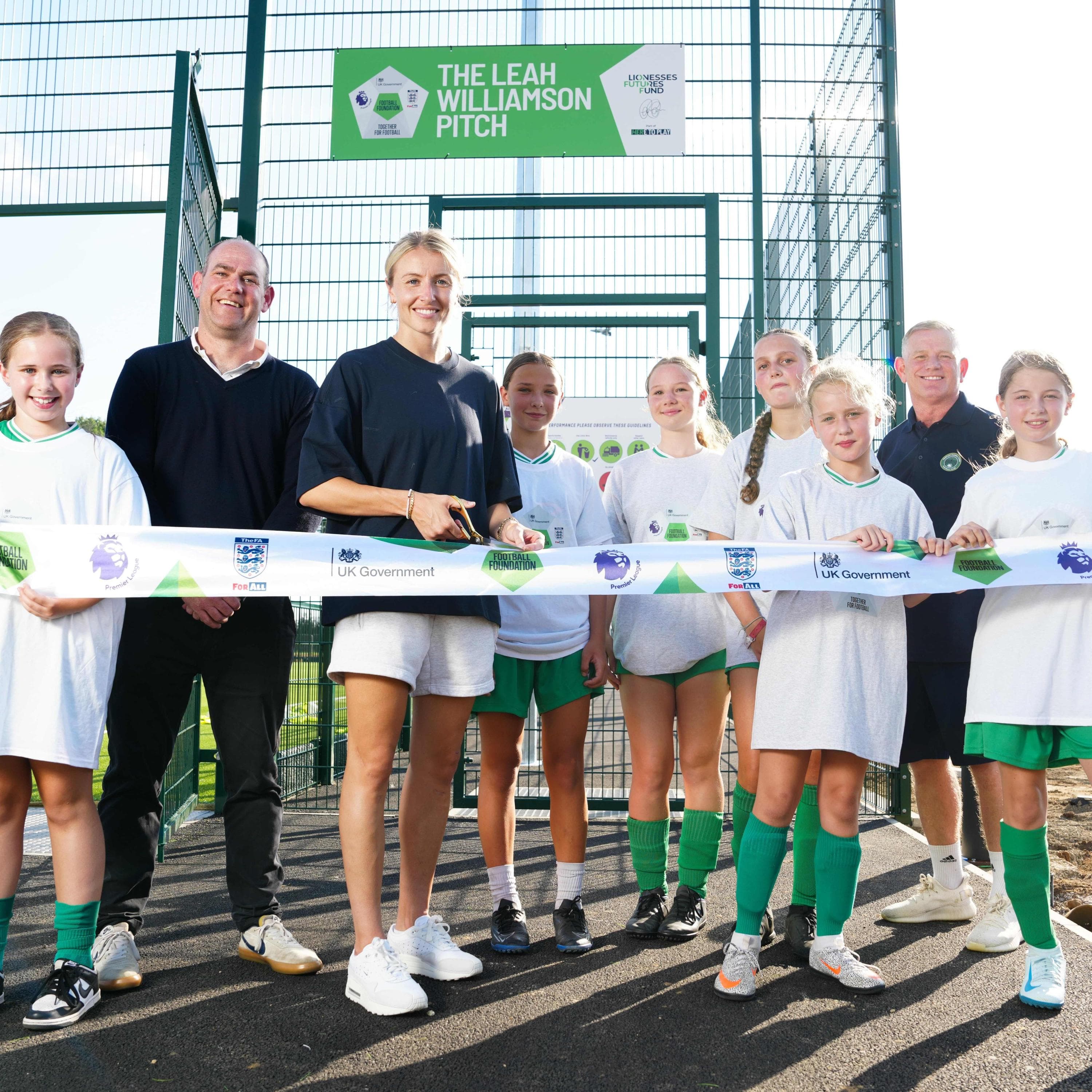Football Foundation changing the game for women and girls

By Joel, 16, Jill Dando News Correspondent
The Premier League, The FA and Government’s Football Foundation has announced its game-changing commitment to providing women and girls with priority access to great places to play.
68,000 more girls are playing now compared to before the Lionesses brought home the UEFA Women’s EURO trophy in 2022.
However, badly lit pitches and access routes, unsuitable changing facilities and late-night kick-off times can put women and girls off taking to the pitch.
Following the unprecedented growth in the grassroots game, the Football Foundation asked Kelly Simmons OBE to undertake an independent review of its investment and work in the women and girls’ game.
Kelly Simmons’ review has made several recommendations that will ensure the Foundation is able to keep with the pace of the game, turbo charging accessible facilities and prioritising access for women and girls.
The review made several recommendations, which the Foundation has committed to implementing in full, including:
- require every large-scale project it funds to guarantee a share of priority slots to women’s and girls’ teams.
- set up a new small grants programme, specifically targeted at creating female-friendly facilities off the pitch, including changing rooms and toilets.
- ensure its refreshed Local Football Facility Plans reflect the growth in women’s and girls’ football, with a new Plan for every local authority in England to be published by June 2025.
Kelly Simmons OBE said:
“The Football Foundation was already doing great work to support the growth of the women’s and girls’ game through its HERe to Play campaign and The Lionesses Futures Fund. My work on this review really dug deep into how the Foundation can supercharge this to meet the demands of the unprecedented growth we’ve seen since 2022.
“The Team at the Foundation has already begun implementing the recommendations. A key area of focus has been to unlock the challenges women and girls face when trying to find slots to play. For grant awards that were made from June this year into new facilities the Foundation has ensured that a minimum of 15% of priority slots go to women and girls activity. This will rise to 20% by FY26, and to 30% by FY30.
“To ensure a long-lasting change we must see a continued commitment from the Foundation and its funding partners to provide gold standard facilities to host these players.”
Robert Sullivan, Chief Executive of the Football Foundation, said:
“After 24 years of delivering outstanding grassroots facilities across England, we’ve seen first-hand the power of sport to transform lives and strengthen communities. No one should be excluded from enjoying all the benefits of the nation’s favourite sport.
"8,600 women’s and girls’ teams played on Football Foundation-funded facilities last season; but if we’re to achieve our goal of ensuring every community, including the rapidly growing number of women’s and girls’ teams, has access to a great place to play, we still have work to do.
“The continued support of our funding partners – the Premier League, The FA and Government – will be vital to delivering a truly transformational change in access to grassroots facilities and ensuring every woman or girl who wants to lace up their boots feels welcome and comfortable to do so.”

HERe To Play
This announcement forms part of the Foundation’s HERe To Play campaign, which celebrates the charity’s commitment to women’s and girls’ football.
As part of this campaign, the Foundation is opening new facilities named in honour of England’s squad at the 2022 UEFA Women’s EURO and 2023 FIFA Women’s World Cup.
So far, the Foundation has opened seven pitches, named after Jill Scott, Ella Toone, Rachel Daly, Chloe Kelly, Millie Bright, Lauren Hemp and Leah Williamson.

Lionesses Futures Fund
Thanks to a £30 million cash injection from the Government and The FA, the Foundation is also delivering at least 30 Lionesses Futures Fund 3G pitches across the country, which will provide a gold standard level of access for women and girls through reserved peak-time slots, women and girls-only evenings and priority booking.
Earlier this summer, the Foundation announced the first 14 sites to be awarded funding through this scheme.





